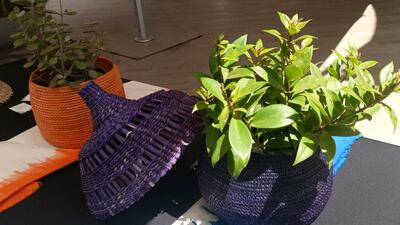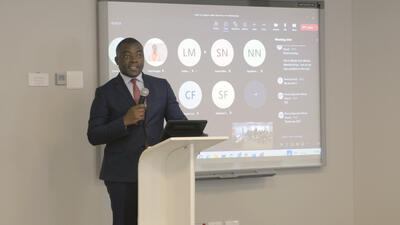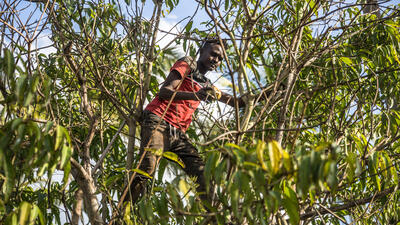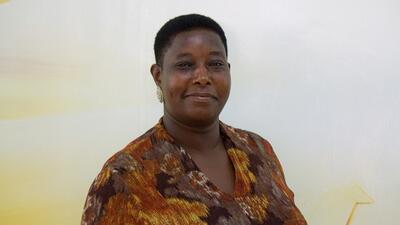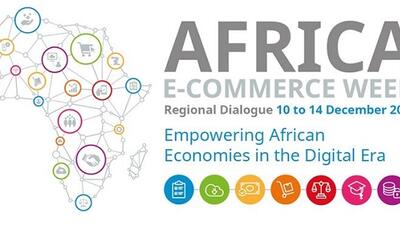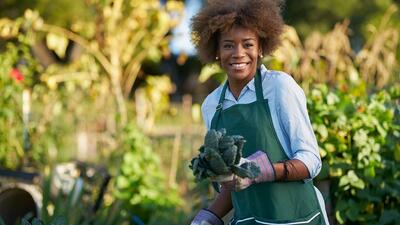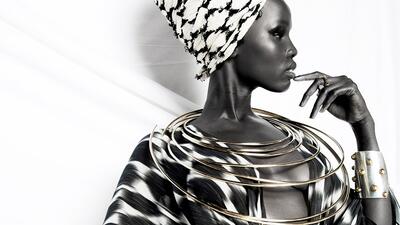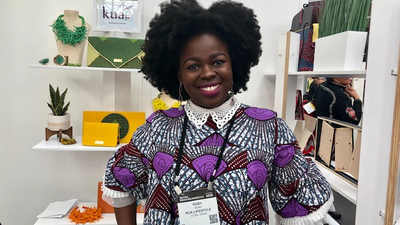
Empowering refugees to benefit from market opportunities (en)
How can marginalized people such as refugees and displaced persons participate in and benefit from markets? How can they be supported to run their own businesses? These are some of the challenges addressed by the International Trade Centre (ITC) and the Norwegian Refugee Council (NRC) as part of the Refugee Employment and Skills Initiative, which was launched earlier this year.
In June 2018, 14 women entrepreneurs based in the Dadaab refugee camp in Kenya were invited to participate in an artisanal study tour in Nairobi to explore and learn how they can connect with markets, including visiting well-developed artisanal markets in the Kenyan capital.
The women – 11 Somalians and three Kenyans – visited four important artisanal retail outlets in Nairobi, all platforms that prioritize grassroots artisanship, and on which motivated sellers can thrive: Amani Ya Juu, Spinner’s Web, Bizarre Bazaar and Goodie’s.
The group was exposed to a variety of produce, which included innovative usage of materials such as goods produced using re-purposed junk and second-hand clothing. The women were also able to explore the variety of products available and to experience more contemporary styles of artisanal products.
Quality requirements
The tour also helped them gain an understanding of the quality required by sellers and buyers, of how retailers greet and approach their customers, and of all the different inputs a seller needs to consider when preparing a product for sale, such as product tag, price tag and payment options.
Also participating on the study tour was Tosheka, a social enterprise specialised in community-based and environmentally friendly textile production. Tosheka is currently developing a home décor collection to produce in collaboration with the women from Dadaab, expanding their skillsets and encouraging them to introduce a contemporary aesthetic with more traditional styles. The goal is to enable the Dadaab-based women to enlarge their product range and to gain access to markets beyond the camp.
Back in Dadaab, the women lead five self-help groups that produce handmade products primarily sold to people living in the camp – both refugees and staff from developing agencies. Each group consists of around 20 people and they boast different skillsets: tie-dye, crochet and basket and mat weaving.
Sharing, learning new skills
Hawa, the leader of Hawa Naf Women’s group, explains that she created a group after noting that working together allows the women to blossom, especially confronted with the difficulties encountered in the camp. This led Hawa to create a group where women could share their skills and help each other develop new ones.
The study tour to Nairobi also aimed at skilling up the 14 participating women: what they learnt will also be shared with other women in Dadaab. In fact, throughout the two-day tour, a steady stream of photos, video and experiences were being shared via smartphones with colleagues back in Dadaab.
A learning experience in the development of new products and sales techniques, the study tour also enabled the women entrepreneurs to grasp concepts such as market trends and payment structures between producer and vendor. Step by step, this will gradually help them acquire the necessary knowledge and skills needed to participate in larger markets from which they would otherwise be excluded.




